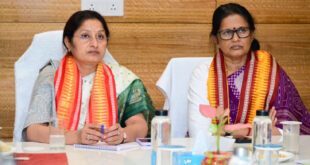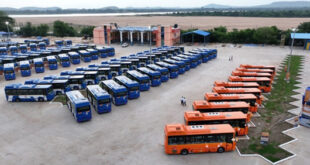In the vibrant, bustling streets of our nation, the stark contrast between the lives of children is a poignant reminder of our collective ignorance and societal failure. On one hand, we see children with brightly colored backpacks, neatly pressed uniforms, and cheerful faces heading to school each day. They chatter excitedly about their homework, projects, and the latest art and craft classes. Their biggest worry might be an upcoming test or a missed homework assignment. These children represent the hope and promise of a progressive society, one that values education and invests in its future.
On the other hand, in the shadowed corners of these same streets, another set of children exists. These children, often barefoot and clad in tattered clothes, carry burdens far heavier than school bags filled with books. Their lives are not punctuated by school bells but by the relentless quest for survival. Their classrooms are the streets, their lessons are in endurance and resilience, and their homework is to find the next meal. For them, education is a distant dream, overshadowed by the immediate need to fend off hunger and hopelessness.
This stark disparity begs the question: Can we truly call our nation progressive when such contrasting realities exist side by side? Education is a fundamental right for every child, yet we are failing to extend this right to all. The Constitution of our country promises education to every child, but for many, this promise remains unfulfilled.
Imagine the children who live in slum areas. Each morning, as the sun rises, they do not head off to school. Instead, they join their parents in collecting garbage, hoping to find something of value they can sell. Their hands, meant to hold pencils and books, sift through refuse. Their eyes, meant to be filled with the light of knowledge, are clouded with the grim reality of poverty. While children their age are learning to solve math problems, they are solving the problem of survival. Their future, like that of many others in the same situation, is being sacrificed at the altar of our collective neglect.
On the other side of town, children living in comfortable homes attend prestigious schools, participate in various extracurricular activities, and dream of becoming someone important. Their parents ensure that they have all the resources they need to succeed. The lives of these children are filled with opportunities, a direct contrast to the ones living a life of endless struggles.
How did we, as a society, come to accept this gross inequality? How can we rest easy knowing that while our children sleep in warm beds, others sleep on cold pavements? The heart-wrenching truth is that our society has turned a blind eye to the plight of these underprivileged children. We have failed to recognize that every child, regardless of their socio-economic background, deserves an equal chance at education and a better life.
The burden of school bags filled with books and notebooks is indeed heavy, but it pales in comparison to the burdens carried by children like Asha. These children carry the weight of broken dreams and lost opportunities. They bear the brunt of our societal apathy and governmental neglect.
Are we truly progressing if we allow this to continue? Progress should not be measured solely by technological advancements or economic growth but by how we uplift the most vulnerable members of our society. True progress lies in ensuring that every child has access to education, nutrition, and a safe environment to grow and thrive.
The responsibility to bridge this gap does not rest solely on the shoulders of the government. It is a collective responsibility. As citizens, we need to raise our voices and demand change. We need to support initiatives that aim to provide education and basic amenities to underprivileged children. We need to volunteer our time, resources, and skills to organizations working towards this cause. Most importantly, we need to cultivate empathy and understanding within our communities.
When will we rise from our slumber and make our society truly equal? When will we realize that the destiny of our nation is intertwined with the fate of every child? It is high time we awaken to this reality and take decisive steps to ensure that no child is left behind.
Imagine a world where every child, regardless of their background, has the opportunity to dream, learn, and grow. We have the power to make this vision a reality, but it requires us to act with urgency and compassion. The measure of our nation’s progress will not be the skyscrapers that touch the sky or the technological marvels we create, but the smiles of children like Asha who finally get a chance to go to school, to dream, and to hope. Let us not rest until every child’s laughter echoes through the hallways of our schools and the streets of our cities, a testament to a society that truly cares. Only then can we proudly call ourselves a truly progressive nation.
 Odisha Samachar Odisha Breaking News , Odisha Current News , Odisha News
Odisha Samachar Odisha Breaking News , Odisha Current News , Odisha News



